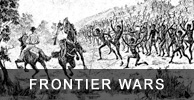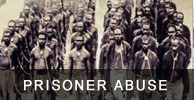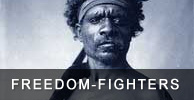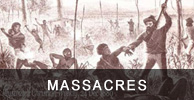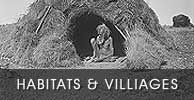Australia's forgotten war - New Book by Henry Reynolds

Enlarge/expand image
An unnamed Aboriginal man, location unknown.
Phillip Adams Interview ABC RN - Late Night Live 22 July 2013
There is far too little, if any, commemoration of Australia’s war between the settlers and the original inhabitants, historian Henry Reynolds argues. He says that until those conflicts are fully acknowledged, in the same way that our overseas battles have been, reconciliation will never be complete.
Australia is dotted with memorials to soldiers who fought in wars overseas. Why are there no official memorials or commemorations of the wars that were fought on Australian soil between Aborigines and white colonists? Why is it more controversial to talk about the frontier war now than it was one hundred years ago?
Forgotten War continues the story told in Henry Reynolds seminal book 'The Other Side of the Frontier', which argued that the settlement of Australia had a high level of violence and conflict that we chose to ignore.
That book prompted a flowering of research and fieldwork that Reynolds draws on here to give a thorough and systematic account of what caused the frontier wars between white colonists and Aborigines, how many people died and whether the colonists themselves saw frontier conflict as a form of warfare.
It is particularly timely as we approach the centenary of WWI. This powerful book makes it clear that there can be no reconciliation without acknowledging the wars fought on our own soil.

Henry Reynolds | 256 pages | ISBN 1742233929
BOOK REVIEW | Monday 24 June 2013
Forgotten War by Henry Reynolds
Review by Steve Bidwell-Brown, Bookseller, Readings Carlton
There is a violence in Australia’s history that few are prepared to acknowledge, argues Henry Reynolds, for the country that venerates the Anzac also fails to recognise the Aboriginal Australians who perished fighting for their traditional homelands.
In Forgotten War, Reynolds discusses the numerous conflicts that took place on the continent between the 1790s and 1920s. Conservative estimates suggest that approximately 30 000 people died on the Australian frontier – 90% of whom were Indigenous. From the systematic annihilation of the Tasmanian Aborigines under Governor George Arthur to the customary killing of ‘native pests’ by pastoral frontiersmen, Reynolds argues that Australia is a nation founded on violent and bloody warfare, and that these events – and the people involved in them – should no longer remain officially ignored.
Considered by many to be the current leading historian on ‘the great Australian silence’, Reynolds has written Forgotten War with a remarkably straightforward and erudite pen. Unlike Manning Clark’s History of Australia or Robert Hughes’s The Fatal Shore, Forgotten War does not depend on the lyrical, hyperbolic language sometimes used by Australian histories to evoke the brutality of the past. Reynolds has remained scrutinisingly close to the sources he cites, and in doing so, he has produced a book that is accessible for the expert and the novice alike.
Forgotten War is Henry Reynolds’ latest attempt to elevate the place of Aboriginal Australians in the national consciousness. An intelligent, challenging and informative work, it has the potential to contribute a great deal to Australia’s understanding of itself. It is a broad and meticulously researched overview of colonial Australia’s treatment of Indigenous Australia, and worthy of our most scrupulous attention.
Henry Reynolds (born 1 March 1938) is an eminent Australian historian whose primary work has focused on the frontier conflict between European settlement of Australia and indigenous Australians.

Henry Reynolds
In more than ten books and numerous academic articles Reynolds has researched and explained what he sees as the high level of violence and conflict involved in the colonisation of Australia, and the Aboriginal resistance that resulted in numerous massacres of indigenous people. Reynolds, and other historians, estimate that up to 3,000 Europeans and 20,000 indigenous Australians were killed directly in the frontier violence, and many more Aborigines died indirectly through the introduction of European diseases and starvation caused by being forced from their productive tribal lands.
The Mabo case
Reynolds was on friendly terms with Eddie Mabo, and, in his book Why Weren't We Told?, Henry describes the talks they had regarding Mabo's people's rights to their lands, on Murray Island, in the Torres Strait. It was Reynolds who initially encouraged Eddie Mabo to take his land matter to court and although Reynolds had little to do with the 'Mabo' case itself, they remained friends until the Eddie Mabo passed away in January 1992.
Background:
Reynolds received a state school education in Hobart, Tasmania from 1944 to 1954, followed by attendance at the University of Tasmania to gain his Masters in Arts degree, then taught in secondary schools in Australia and England. He returned to Australia in 1964, accepting a post as lecturer and to set up the programme in Australian History at Townsville University College, now known as James Cook University. He gained his doctorate in history from James Cook University, and was later Associate Professor of History and Politics at the University from 1982 until retiring from there in 1998. He then took up an Australian Research Council post at the University of Tasmania in Launceston, and subsequently a post at Riawunna, the Centre for Aboriginal Education of the University of Tasmania.
 War memorial battle over frontier conflict recognition
War memorial battle over frontier conflict recognition
 Lest We Forget the warriors who fell in 'The Frontier War' conflicts
Lest We Forget the warriors who fell in 'The Frontier War' conflicts

